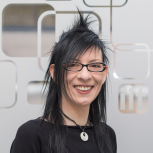How to interact with a post-doc who is showing difficulties and low performance beyond any expectations? I have difficulties interacting with this person, who is showing slow learning, reasoning difficulties and is also extremely emotional. Mentoring is very important for me and I would like to help this post-doc improve and be ready for another lab.
This is going to be a long post, so, please, bear with me.
As some of you already know, I have recently started my new adventure as PI and, when searching for a post-doc to join my new lab, I had asked the community for advice on how to identify the right candidate for the role. I have received many very useful inputs, but nonetheless I am now facing what I sincerely didn’t hope for: my post-doc is way below any expectations, and it’s not a matter of competences, but a matter of reasoning capability. This really goes beyond any unexpected and didn’t emerge at all during my interview with the candidate, nor among referees. Basically, a BSc would do better. I’ll call this person X for the sake of privacy.
X was recommended by trusted colleagues, so I personally made contact with X. The interview was very open and honest about competences, gaps, aspirations, relations with past PhD supervisor and experimental procedures X was not going to be comfortable with. X also showed a good degree of humility and eagerness to learn, and seemed to have a good level of maturity in understanding gaps and training objectives. I had decided to invest in X for one year and personally train X from the basics of my field and see where this was going to take us.
Unfortunately, the performance of X has been very deluding. I accept and fully understand the difficulties of having to deal with something (almost) completely new, but I can’t understand the complete lack of proactive mindset, problem-solving skills (even in very basic things) and of ability of observation in a post-doc. Not to mention that X took 1 month to analyze one experiment that would require one full-time day of work.
For 4 months now I have trained X in everything needed to become independent. Usually, for these basic simple experiments, my past BSc and MSc have become independent in less than a month and brought the first results in around 3-6 months (depending on personal aptitude). Initially, I was very enthusiastic of X, although I could spot a slow learning curve. I realized I needed to dedicate more time and patience to X, and that was OK with me. Like I wrote, everyone is different and some people learn faster than others. But now, I am basically micromanaging X. Even when it comes to verifying experimental conditions or call technical support, X is totally lost and at a stall. I need to provide step-by-step instructions and set clear deadlines for X to show some action. Due to this, there has been no progress so far, while I am now convinced I am investing too much energy on this.
Also, like I wrote at the beginning, X is very emotional, to a point that I have difficulties telling things to help improve, because my suggestions are taken as personal critique aimed at putting pressure, cornering and belittling (this is very bad).
I wanted to talk to X openly about these issues, in order to help X go back on track, but eventually today we happened to reach there while talking about experimental issues; and eventually X started crying when I tried to help asking X to reason about a basic math operation (7x8). This also makes me reason if X doesn’t suffer with post-traumatic stress disorder, also in light of what X tells me about the PhD experience.
I would have never imagined I’d come across a difficult person such as X, showing extreme emotional reactions, learning issues, little reasoning, little observation spirit and poor critical thinking, poor intuition and no analytical mind. All these aspects together have never emerged during the selection process, but only emerged when I started giving more independence to X. These issues are a tough bottleneck in the progress of my project and unfortunately, I believe that they can hardly be improved in a short time-frame as required by my project.
I wish I could help X, but I just don’t have the resources to do so. I feel very sad, because mentoring is very important to me, but the most I could offer X today is that I keep providing my help to achieve publication of one simple paper that is already written and only needs a few more experiments as required by reviewers. Today, we agreed that, apart for my close day-by-day help, I would re-assess the progress in independent thinking after the summer and eventually decide whether to renew the appointment. X seemed to be more motivated than discouraged. This way, if things keep not working, X will have 4 months to relocate and I’ll have enough time to choose a more suited post-doc. However, like I wrote, I honestly doubt I’m going to witness a surprising radical change in all of the above independence-related skills. The most I may achieve, in my opinion, is help X get ready for another post-doc in a less demanding and non fast-paced lab.
I apologize for the long novel, but this thing is really taking a lot of my mental energy, as I am very sad I can’t do more for X, I have really done everything in my power to help.
But maybe some of you have dealt with a similar situation and can spot flaws or things left undone in my approach?
@iratrofimov you were so helpful back in the day and you have the right background to help me help my post-doc. I hope you will poke in.
Thanks for your help, whoever you are




